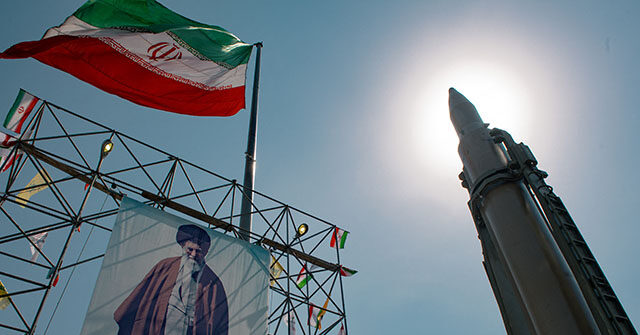Iran unveiled a new solid-fueled ballistic missile and claims it has stationed similar systems nationwide, according to state-run TV, which cited military officials promising the ability to strike U.S. bases and interests “wherever they are” if war breaks out.
On Sunday, Iranian state media broadcast images of the new “Qassem Basir” missile during a televised appearance by Defense Minister Gen. Aziz Nasirzadeh, amid rising tensions with Washington over Tehran’s growing missile capabilities and nuclear enrichment program.
The missile reportedly boasts a 745-mile range, precision strike capacity without GPS, and improved defense-evading agility. According to Nasirzadeh, the system was last tested on April 17 and is capable of identifying and hitting designated targets without satellite guidance.
The announcement followed U.S. Defense Secretary Pete Hegseth’s message on Wednesday warning Tehran against continued support for Yemen’s Houthi rebels.
In response, Nasirzadeh issued a stark threat that if war is initiated by the U.S. or Israel, Iran will strike their interests, bases, and forces “wherever they are and whenever necessary.” He also emphasized that American military installations across the Middle East would become “legitimate targets” in any conflict.
The missile’s unveiling and the vow to target American assets around the globe signals a hardened stance from Tehran at a time when U.S. deterrence is under scrutiny and proxy wars in the region continue to escalate.
The developments come as U.S.-Iran nuclear negotiations continue, with Washington seeking to limit Tehran’s atomic ambitions.
Last month, former Iranian diplomat Amir Mousavi admitted Iran is using negotiations with the United States as a tool to advance its interests while maintaining open hostility toward America and Israel — vowing that chants of “Death to America” and “Death to Israel” would continue.
The interview underscored Tehran’s enduring strategy of using diplomacy to buy time while pursuing its ideological goals, posing a persistent challenge for American negotiators and allies.
Iran remains the world’s leading state sponsor of terrorism, funding proxy groups to fuel violence across the region. Domestically, under Supreme Leader Ali Khamenei, the regime has intensified repression, executing more than 1,000 prisoners in 2024 alone.
Amid growing unrest, many Iranians have voiced support for President Trump’s hardline policies, viewing them as a path toward real change.
Meanwhile, Iranian threats have escalated. In recent months, the regime has intensified calls to assassinate President Trump, threatened American forces, and continued global plots targeting dissidents and U.S. officials.
President Trump has signaled openness to negotiations but warned that Iran’s pursuit of nuclear weapons would permanently close its path back to the global stage — emphasizing a doctrine of peace through strength and an unyielding opposition to nuclear proliferation by terror-linked regimes.
The matter follow’s Sunday’s deadly Houthi attack targeting Israel’s main airport.
The strike resulted in several injuries and grounded a number of international flights, Israeli defense sources confirmed.
In response, Israeli Prime Minister Benjamin Netanyahu declared firm support for President Donald Trump’s stance on Iran, which he declared in a post from March.
“President Trump is absolutely right! Attacks by the Houthis emanate from Iran. Israel will respond to the Houthi attack against our main airport AND, at a time and place of our choosing, to their Iranian terror masters,” the prime minister wrote.
Netanyahu’s statement, reinforced by President Trump’s earlier warning, reflects a view among many officials that failing to hold Iran accountable now risks even broader instability down the line.
Joshua Klein is a reporter for Breitbart News. Email him at [email protected]. Follow him on Twitter @JoshuaKlein.
Read the full article here
